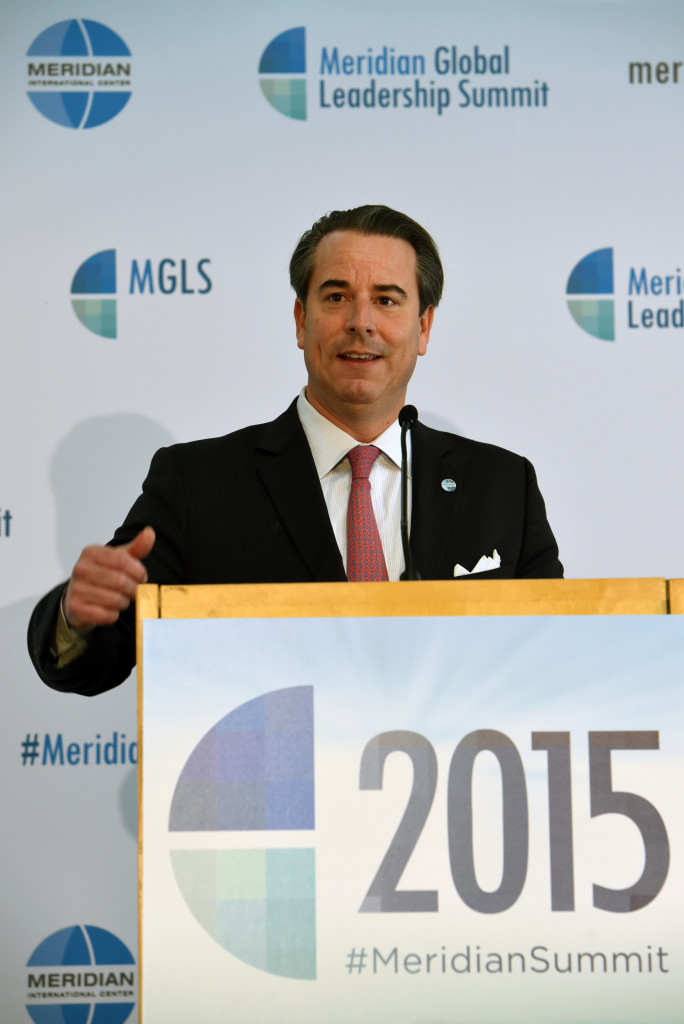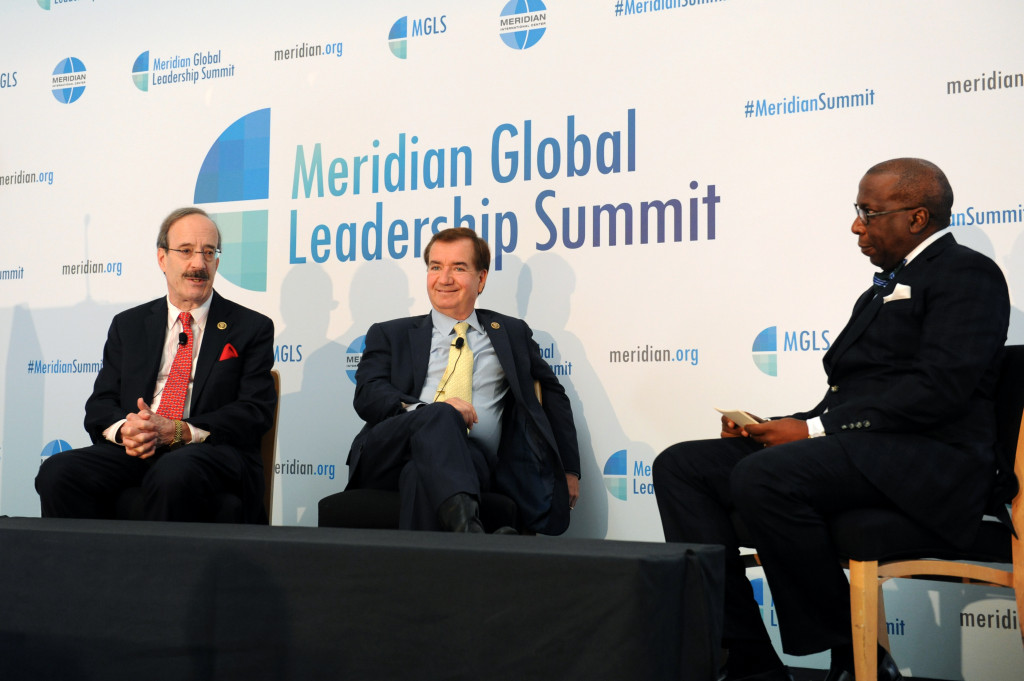What exactly is foreign policy, and how is it created? I have found that most people I meet have a hard time pinning down an exact answer. What most people do know, however, is that foreign policy is crucial in today’s world. Particularly with the 2016 election coming up, it is sure to be a popular topic of discussion. So how can there be so much confusion about a topic so important? As the process of forming foreign policy has shifted and changed over time, understanding of the term has stayed rooted in antiquated ideas of what foreign policy used to be.
The Meridian Global Leadership Summit on October 16th tackled the topic of “Why Foreign Policy Matters” from the political, economic and cultural lens, hearing from leaders such as Congressmen Ed Royce and Eliot Engel, Deputy Secretary of State Antony Blinken, and Coca-Cola Company President and COO James Quincy, among so many others. Before the event, I got a chance to talk to Ambassador Stuart Holliday, President and CEO of Meridian International Center, about what people misunderstand most about foreign policy.

According Ambassador Holliday to “foreign policy is how we, as a nation, manage our relationships with other countries and societies.” However, the way in which we manage those relationships has changed dramatically. In our conversation, Ambassador Holliday identified five pervasive myths surrounding foreign policy. By debunking these myths, and defining what foreign policy today is not, I hope to return some accessibility to the term.
Myth 1: Foreign policy is foreign.
The word “foreign” implies that average Americans are removed and unaffected by policy decisions. In reality, decisions made to resolve issues that seem purely foreign almost always have an effect on Americans. Along the same lines, solutions to domestic issues often can be found abroad. For example, the Keystone Pipeline has created both an environmental debate and a fight against big oil companies domestically, but has also tested U.S.-Canada relations, requiring both countries to compromise. While stopping the Pipeline could please many Americans, it could also damage our relationship with Canada. This issue is one of the many examples of the delicate balance and intertwined results of foreign and domestic interests.
Myth 2: Foreign policy is policy.
The word “policy” carries a connotation of a consensus being made by a small number of people. In the early years of United States foreign policy, a select group of men used to sit around a table making decisions and “creating policy.” This is no longer the case; however, Ambassador Holliday believes there is still a general perception that foreign policy is created only at the White House and the Department of State. Today foreign policy is less about strictly defined rules, and is rather “the end result of a series of interests” – those of the citizens and governments of allies, those of the U.S. government, and most importantly those of the American people.
Myth 3: Foreign policy and domestic policy are separate entities.
As Ferguson, MO was torn apart and our homeless neighbors line the streets, many are calling for a laser focus on fixing our problems here at home before those of others abroad. But Ambassador Holliday urges people to recognize that foreign policy is the foundation for domestic policy, and vice versa. The two are undeniably and inextricably linked. Foreign policy does address domestic issues, and how we conduct ourselves internationally affects how we live in the US. For example, when we give humanitarian aid and help improve infrastructure in developing markets, we gain trading partners who benefit American companies and lower prices.
Myth 4: Foreign policy is for the elite.
In other words, international travel is a luxury and face-to-face interaction is superfluous. However, to maintain international trade we need to build trusting relationships with foreign leaders, which can only be achieved by meeting with them in person. We need to recognize the incredibly important role Ambassadors and foreign policy experts play in our daily lives, and move away from perceiving them as the elite, extravagant few.
Myth 5: Foreign policy is inaccessible to everyday citizens.
There is a belief that we are powerless in influencing our international relationships. I argue that foreign policy belongs to everyone. Every individual takes part by using technology, writing, reading, organizing, connecting, or simply sharing information. Any American has the power to represent and influence international perceptions of the U.S. during travel.
As we try to make foreign policy more accessible, it is easy to feel intimidated by how broad its definition has become. If foreign policy is not foreign, and it’s not policy, then what is it? But that is exactly the point – foreign policy is everything. From social media, to tourism, to the kinds of cars we drive, we always have some ownership of our country’s international relationships. Foreign policy’s reach is far larger than any definition is capable of encompassing.

















